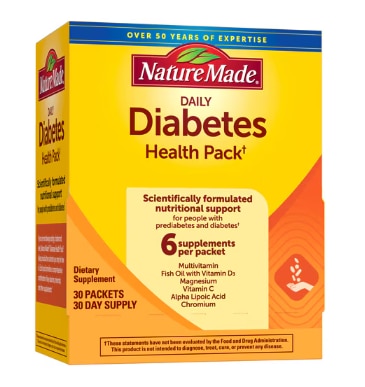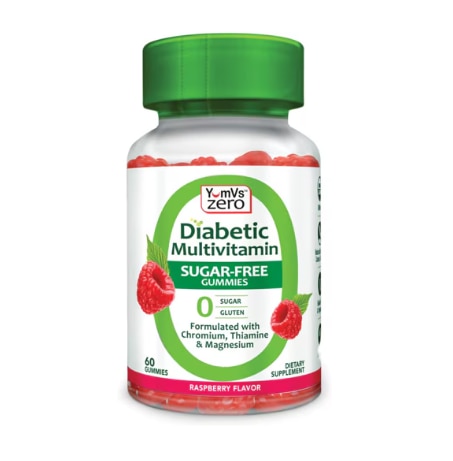November marks Diabetes Awareness Month, a time dedicated to bringing awareness to diabetes and encouraging individuals to take action towards this chronic condition. With millions of Americans living with diabetes and prediabetes, the need for awareness and action is more critical now than ever before.
By dedicating a month to diabetes, our goal is to increase understanding of diabetes, promote early diagnosis, encourage healthy lifestyles, and support people who are impacted by diabetes.
Here, we’ll review the origins of Diabetes Awareness Month and dive into why understanding this condition and supporting those affected by diabetes is so important.
The origin of Diabetes Awareness Month
Diabetes Awareness Month has been observed for over 40 years. The timing coincides with World Diabetes Day on November 14th which is the birthday of Sir Frederick Banting who co-discovered insulin in 1921. The life-saving discovery of insulin completely changed the future of diabetes care.
Why should we dedicate an entire month to diabetes awareness? According to the International Diabetes Federation, over 537 million adults around the world are currently living with diabetes, and this number is projected to rise to 783 million by 2045. That’s nearly 1 in 8 adults on our planet, making it one of the most prevalent diseases in the world.
Understanding diabetes
Let’s review the different types of diabetes and complications that can occur if diabetes is not managed properly.
Types of diabetes
- Type 1 diabetes: Often diagnosed in children and young adults. It occurs when the body’s immune system attacks and destroys the insulin-producing cells in the pancreas. People with Type 1 diabetes require lifelong insulin therapy.
- Type 2 diabetes: The most common form of diabetes. Type 2 diabetes develops when the body doesn’t produce enough insulin or doesn’t use the insulin effectively. This may be linked to lifestyle factors like diet and exercise.
- Gestational diabetes: Develops during pregnancy and usually disappears after childbirth. However, having gestational diabetes increases the risk of developing Type 2 diabetes later in life.
Diabetes complications
Diabetes is a major cause of health complications. If left unmanaged, diabetes can lead to a range of complications, including:
- Cardiovascular disease: Diabetes increases the risk of heart disease, heart attack and stroke.
- Kidney disease: High blood sugar can damage the kidneys, ultimately leading to the need for dialysis and kidney failure.
- Nerve damage: Diabetes can cause nerve damage (neuropathy), leading to numbness, tingling and pain often in the legs and feet.
- Eye damage: Diabetic retinopathy can lead to vision loss and blindness.
- Foot problems: Nerve damage and poor blood flow can lead to foot ulcers and infections, sometimes requiring amputation.
Raising awareness
Diabetes Awareness Month is a call to action. By spreading knowledge and understanding, we can empower individuals to take control of their health. Raising awareness is important for:
- Early diagnosis and treatment: Recognizing the symptoms and risk factors of diabetes can lead to early diagnosis, allowing for timely treatment and management to prevent or delay complications.
- Prevention of type 2 diabetes: Awareness promotes healthy lifestyle choices, such as balanced eating and regular physical activity, which can significantly reduce the risk of developing type 2 diabetes.
- Reduced stigma: Open conversations about diabetes help reduce stigma.
- Increased support: Calling attention to diabetes helps foster a supportive environment for those living with the condition.
- Funding for research and advocacy: Increased awareness can lead to greater funding for research into new treatments, prevention strategies, and advocacy efforts to improve the lives of people with diabetes.
Taking action for diabetes
Below is a list of five ways to take action toward preventing or successfully managing diabetes:
- Eat a balanced diet: Focus on whole grains, fruits, vegetables, lean protein and healthy fats. Drink plenty of water to stay hydrated. Limit processed foods, sugary drinks, and saturated fats.
- Exercise regularly: Aim for at least 30 minutes of exercise most days of the week. Find activities you enjoy, like walking, hiking, swimming, or dancing.
- Maintain a healthy weight: If you are overweight or obese, even a small amount of weight loss (5-10%) can significantly reduce your risk of developing Type 2 diabetes.
- Regular check-ups: Schedule regular visits with your doctor for important health checks including blood sugar monitoring.
- Medications: If you have diabetes, take your medications as prescribed and follow your doctor’s recommendations for monitoring your blood sugar levels.
Showing support
There are numerous ways to demonstrate your support for those affected by diabetes. Wearing blue, the universal symbol for diabetes, is a simple yet effective way to show solidarity.
Additionally, consider lighting your home or workplace in blue during November to align with the global initiative of lighting up landmarks in blue for World Diabetes Day.
Organizing a local event, such as a fundraising walk or a diabetes awareness seminar is a great way to actively engage your community. You can also utilize your social media accounts to engage your network by sharing infographics, facts, and resources with relevant hashtags like #DiabetesAwareness, #PreventDiabetes, #KnowYourNumbers, or #DiabetesSupport.
Donating to research organizations like the American Diabetes Association or Breakthrough T1D directly contributes to finding a cure and improving lives.
Lastly, don’t forget to enhance your knowledge and understanding of diabetes by exploring resources from the American Diabetes Association or the Centers for Disease Control and Prevention (CDC).
In summary
Diabetes Awareness Month serves as a time to provide education about diabetes, share stories, and inspire others to take action. It is a reminder to those living with diabetes that they are not alone.
Continued advances in research and technology offer hope for better blood sugar management, improved quality of life, and a future with even greater possibilities.
This November, let’s commit to making a difference. Learn more about diabetes, support diabetes organizations, and advocate for diabetes prevention and care. Together, we can raise




